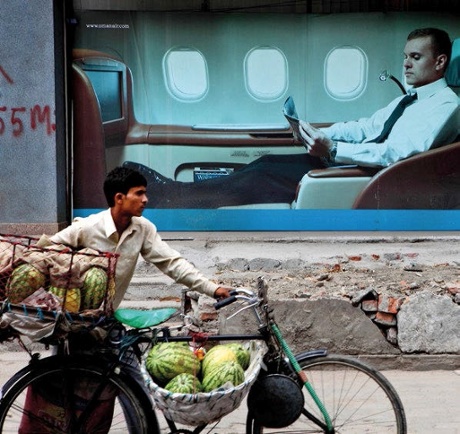The UK Guardian reports that it would take the world's richest man, Mexico’s Carlos Slim, 220 years to spend his $80bn fortune at a rate of $1million a day.
Is that amount of wealth acceptable given that Carlos Slim shares the planet with hundreds of millions of people living without access to clean drinking water and without enough food to feed their families?
As the following article outlines organisations such as Oxfam, the International Monetary Fund and the World Bank have all called for action to tackle inequality.
''The development charity Oxfam is calling for a seven-point plan to tackle the “explosion” in inequality after reporting that the world’s richest people have been left untouched by austerity and are seeing their wealth increase by half a million dollars every minute.
In a new report, Oxfam said that the number of billionaires doubled between 2009 and 2014 - a period in which many countries suffered deep recession, rising unemployment, welfare cuts and falling real incomes.
Earlier this year, the charity said the world’s 85 billionaires owned the same wealth as the poorest half of the world’s population. In its latest study – Even It Up – Oxfam said that this elite group had seen their wealth collectively increase by $668m (£414m) a day in the 12 months to March 2014. It found that it would take the world’s richest man - Mexico’s Carlos Slim - 220 years to spend his $80bn fortune at a rate of $1m a day.
With an endorsement from Andy Haldane, chief economist at the Bank of England, the report said a 1.5% billionaire wealth tax would raise $74bn a year – enough to put every child in school and provide health care in the world’s poorest countries.
Since 2009, at least a million women have died in childbirth due to a lack of basic health services and around the world 57 million children are currently missing out on school, the charity said.
 The cover of Oxfam’s report, Even It Up. Photograph: Oxfam
The cover of Oxfam’s report, Even It Up. Photograph: OxfamMark Goldring, Oxfam’s chief executive, said: “Inequality is one of the defining problems of our age. In a world where hundreds of millions of people are living without access to clean drinking water and without enough food to feed their families, a small elite have more money than they could spend in several lifetimes.
“The consequences of extreme inequality are harmful to everyone - it robs millions of people of better life chances and fuels crime, corruption and even violent conflict. Put simply, it is holding back efforts to end poverty. Governments around the world have been guilty of a naive faith that wealth going to those at the top will automatically benefit everyone. That’s not true – it is their responsibility to ensure the poorest are not left behind.”
“Extreme inequality has exploded across the world in the last 30 years, making it one of the biggest economic, social and political challenges of our time. Age-old inequalities on the basis of gender, caste, race and religion – injustices in themselves – are exacerbated by the growing gap between the haves and have-nots,” the report said. “Oxfam’s decades of experience in the world’s poorest communities have taught us that poverty and inequality are not inevitable or accidental, but the result of deliberate policy choices. Inequality can be reversed.” http://www.theguardian.com/business/2014/oct/29/explosion-wealth-inequality-needs-urgent-plan-action-oxfam
Should people be free to make as much money as they can and if so, how do we balance that with the fact that so many others have so little?
Could a 'billionaire tax' be a possible way forward. What do you think?
Image source
It is proposed that the world's billionaires should pay a 1.5% 'billionaire tax' to help address global inequality